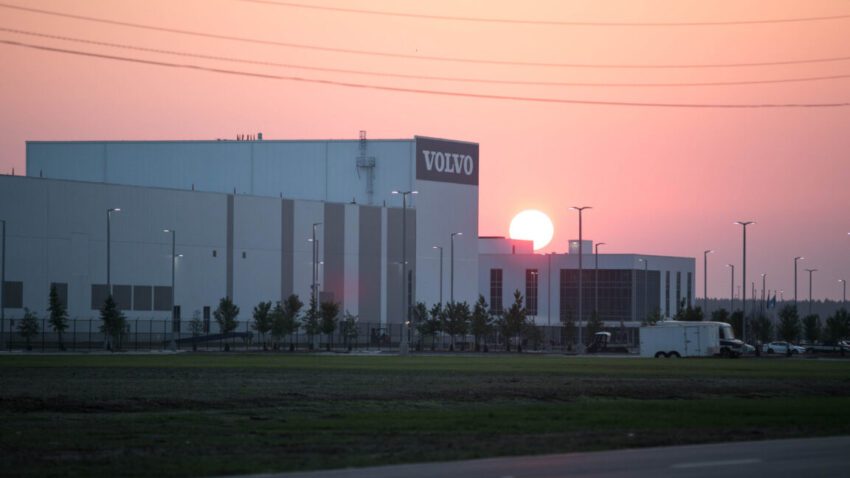
volvo says it has big plans for Volvo has unveiled ambitious plans for its Ridgeville, South Carolina factory, signaling a significant shift in its strategy as the automaker aims for a fully electric lineup by 2040.
volvo says it has big plans for
Volvo’s Strategic Shift Towards Electrification
Volvo is currently navigating a transformative phase, focusing on becoming a fully electric vehicle manufacturer by the year 2040. This goal is part of a broader strategy to adapt to changing consumer preferences and regulatory pressures regarding emissions and sustainability. However, achieving this ambitious target requires the company to maintain its operational viability in the interim. Earlier this year, this necessity led to a series of layoffs as part of a restructuring effort aimed at streamlining operations and reducing costs.
The decision to focus on electric vehicles (EVs) is not merely a response to market trends; it is also a proactive measure to align with global initiatives aimed at combating climate change. Governments around the world are increasingly implementing stricter emissions regulations, and consumers are showing a growing preference for sustainable transportation options. In this context, Volvo’s commitment to electrification positions the company as a forward-thinking leader in the automotive industry.
History of the Ridgeville Plant
Volvo has been manufacturing vehicles in Ridgeville, South Carolina, since 2017. The plant initially produced the S60 sedan, a choice that raised eyebrows among industry analysts and consumers alike. By the time production began, the U.S. automotive market was already witnessing a significant shift away from sedans towards crossovers and SUVs. This trend has only intensified in recent years, making the decision to produce a sedan in South Carolina somewhat perplexing.
Production of the S60 ended in the summer of 2022, marking a pivotal moment for the Ridgeville facility. In its place, the plant has shifted focus to the production of larger electric models, specifically the EX90 SUV and the related Polestar 3. This transition reflects not only changing consumer preferences but also Volvo’s commitment to electrification.
Current Production Capacity and Utilization
Despite the recent changes, the Ridgeville plant is currently underutilized. With an annual production capacity of 150,000 vehicles, the facility has not yet reached its full potential. This underutilization presents both challenges and opportunities for Volvo as it seeks to ramp up production and meet growing consumer demand for electric vehicles.
In July 2023, Volvo announced its turnaround plan, which included the decision to begin production of the next midsize XC60 in South Carolina. This move is particularly strategic, considering the ongoing Trump tariffs on imported vehicles and the importance of the XC60 model to Volvo’s sales figures in the U.S. market. By producing the XC60 domestically, Volvo aims to mitigate the financial impact of tariffs while also catering to consumer preferences for SUVs and crossovers.
Implications of the New Production Plans
The decision to expand production at the Ridgeville plant has several implications for Volvo and the broader automotive landscape. Firstly, it underscores the company’s commitment to local manufacturing, which can enhance its reputation among consumers who prioritize domestic production. Additionally, local production can help reduce supply chain complexities and improve responsiveness to market demands.
Furthermore, the introduction of the XC60 at the Ridgeville facility aligns with Volvo’s goal of increasing its electric vehicle offerings. The XC60 is a crucial model for Volvo, and its production in South Carolina will allow the company to better serve the North American market. This strategic alignment not only bolsters Volvo’s sales potential but also reinforces its commitment to sustainability by reducing the carbon footprint associated with transporting vehicles across borders.
Stakeholder Reactions
The announcement of the new production plans has elicited a range of reactions from stakeholders, including industry analysts, local government officials, and consumers. Industry experts have generally welcomed Volvo’s commitment to expanding its production capabilities in South Carolina, viewing it as a positive step towards enhancing the company’s competitiveness in the rapidly evolving automotive market.
Local government officials have also expressed optimism about the expansion plans. The Ridgeville plant has already created numerous jobs in the region, and further investment in the facility is likely to lead to additional job creation. This is particularly significant in the context of economic recovery following the challenges posed by the COVID-19 pandemic. The prospect of new jobs and increased economic activity is likely to resonate positively with local communities.
Challenges Ahead
While the expansion of the Ridgeville plant presents numerous opportunities, it is not without challenges. The automotive industry is currently facing a myriad of issues, including supply chain disruptions, semiconductor shortages, and fluctuating raw material costs. These factors could impact Volvo’s ability to ramp up production as planned.
Moreover, the transition to electric vehicles requires significant investment in new technologies and infrastructure. Volvo will need to ensure that its production processes are equipped to handle the complexities associated with manufacturing electric vehicles, including battery production and integration. This will necessitate collaboration with suppliers and investments in research and development to stay at the forefront of EV technology.
Future Outlook
Looking ahead, Volvo’s plans for the Ridgeville plant are indicative of a broader trend within the automotive industry towards electrification and sustainability. As more automakers pivot to electric vehicle production, competition is likely to intensify. Volvo’s ability to differentiate itself through innovative technologies, design, and customer experience will be crucial in maintaining its market position.
The company’s commitment to becoming fully electric by 2040 is ambitious, but it is also a reflection of the changing landscape of the automotive industry. As consumers increasingly prioritize sustainability and environmental responsibility, manufacturers that fail to adapt may find themselves at a disadvantage.
Conclusion
Volvo’s announcement regarding its Ridgeville, South Carolina factory marks a significant step in the company’s journey towards electrification. By expanding production capabilities and focusing on key models like the XC60, Volvo aims to strengthen its position in the North American market while navigating the challenges of a rapidly evolving automotive landscape. As the company continues to invest in its future, the success of its plans will depend on effective execution, adaptability, and a keen understanding of consumer preferences.
Source: Original report
Was this helpful?
Last Modified: September 23, 2025 at 8:37 pm
3 views















